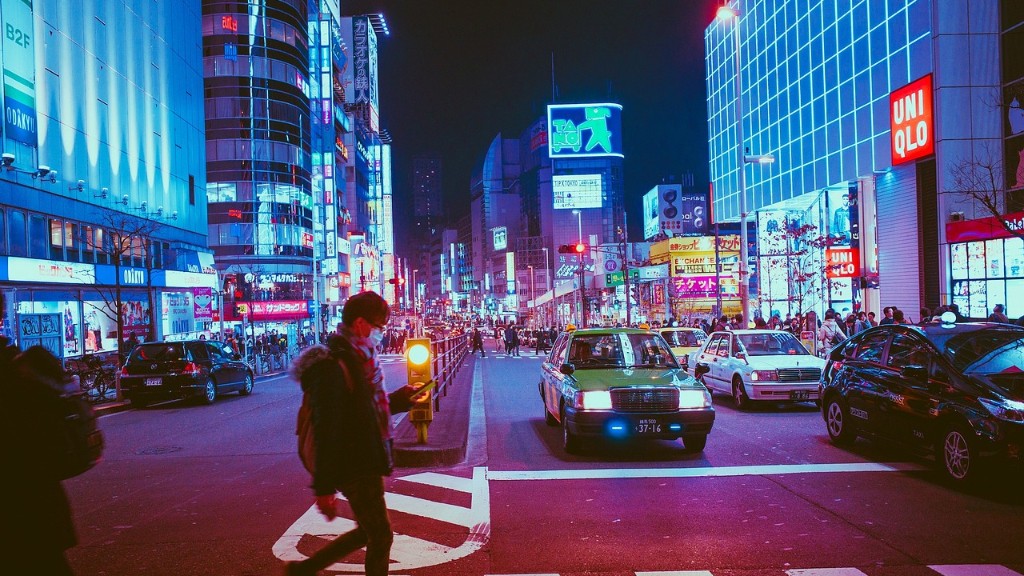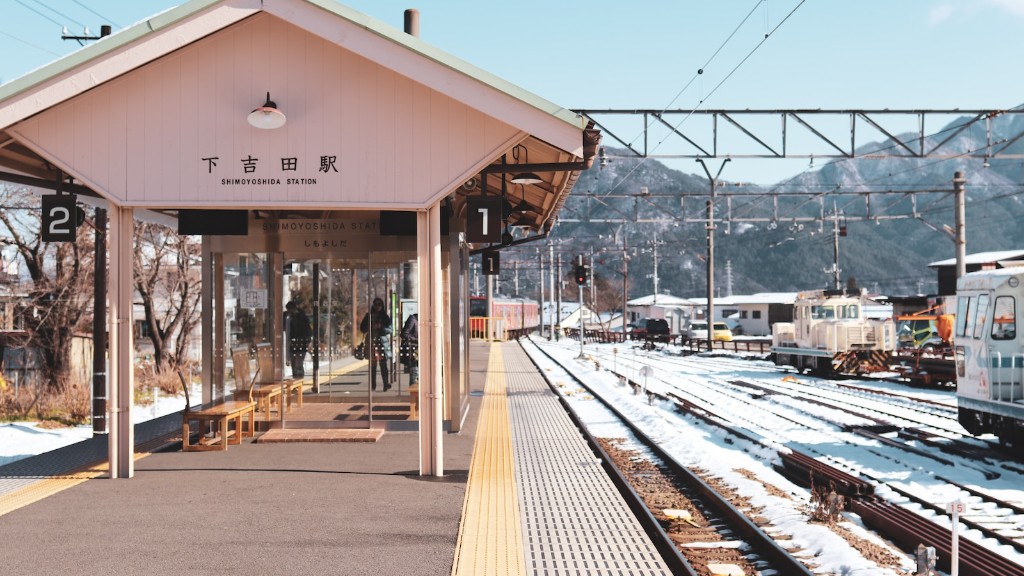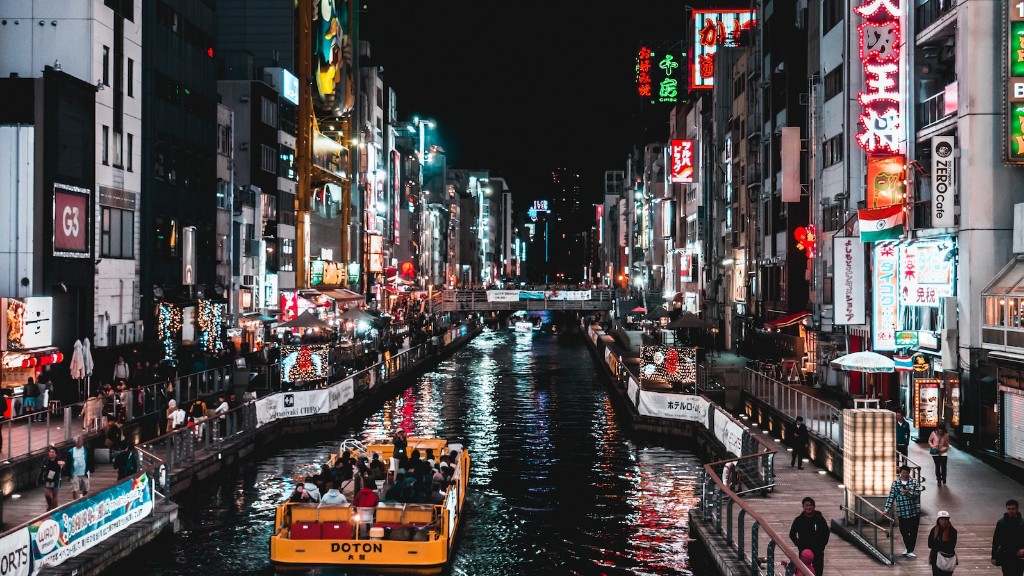Japan is a country of fascinating culture and interesting traditions. When it comes to travelling to Japan, one needs to take into account the national holidays of the country. There is a wide variety of different national holidays that one should consider while planning a trip to the country.
The official holidays of the year include New Year’s Day, Coming-of-Age Day, National Foundation Day, Vernal Equinox Day, Showa Day, Constitution Memorial Day, Greenery Day, Children’s Day, Marine Day, Mountain Day, Respect-for-the-Aged Day,Autumnal Equinox Day and Health-Sports Day. Each national holiday in Japan is celebrated in a unique way and offers tourists a unique experience of the country. This provides various opportunities to explore different parts of the country and immerse oneself in the rich culture and traditions of Japan.
One of the most popular national holidays is the New Year’s Day in Japan. People celebrate this day with great enthusiasm and joy. Almost every corner of the country conducts some amazing events that includes music, art, and entertainment activities. Tourists are allowed to participate in these activities and experience the culture of the country. During this day, people hang flags and banners around the country to mark the beginning of a new year which makes the country look quite vibrant.
The Coming-of-Age Day is also a significant national holiday in Japan. This day marks the transition of 20 year olds into responsible adults. On this day, people offer gifts and support to the younger generations and wish them well in their future life. In addition to this, many cities organise cultural events like concerts, plays, and other entertaining activities for the youngsters at this point.
National Foundation Day is the national holiday of Japan to commemorate the birth of the country. It marks the day the Emperor Jimmu ascended to the throne to start the Yamato dynasty in the 8th century. On this day, people gather around to offer prayers and tribute to the emperor for his contributions. Tourists have the opportunity to witness several traditional ceremonies and rituals held in temples that commemorate the establishment of the country.
During the Vernal Equinox Day, people observe a day of rest to celebrate the change in the season from winter to spring. Every region and city of Japan organise their own unique celebrations based on different customs and traditions. Tourists can attend those events and observe the variety of culture that exists in the country.
Showa Day is a national holiday that marks the birthday of the late Emperor Showa who ruled Japan from 1926-1989. It is a day where people remember and reflect on his achievements and contributions to the country. On this day, many memorial ceremonies are held by the Imperial Household with an audience including members of the royal family, the prime minister, and members of the public.
Every country has their own custom and tradition regarding national holidays. Japan is no different when it comes to this. Whatever national holiday it is, it provides tourists with enough opportunities to explore different parts of the country and immerse themselves into the unique culture of Japan.
History of Japan Holidays
The history of the national holidays in Japan dates back to the Asuka period when people observed the same festivals that are currently celebrated as the official national holidays. During those times, people celebrated festivals to offer prayers to gods and deities, and to celebrate the changes in the season. Moreover, people used to celebrate particular events such as weddings or funerals in their local communities.
During the Heian period, festivals began to become more elaborate. Many festivals began to include Kyoto, the then country’s capital, in the celebrations. The emperor and members of the royal family participated in those festivals wearing their most elegant attire.
Although many of the national holidays were based on the ancient Shinto and Buddhism customs, some of them had their own origin. An example of this is Respect-for-the-Aged Day which commemorates the elderly citizens of Japan in a special way. This day also promotes the importance of caring for the elderly in the country.
When it comes to developing the national holidays, Japan was quite unique in its approach. It was one of the first countries to recognise the importance of preserving its own culture, religions, and customs. Thus, Japan has become one of the most diverse countries with a rich cultural background.
The national holidays of Japan provide a unique experience to both locals and tourists. One gets an opportunity to observe the cultural significance of each holiday. It also showcases the cultural unity of the country in preserving its own practices and customs.
Culture and Traditions of Holidays
Each national holiday in Japan is uniquely celebrated with distinctive rituals and customs. This makes Japan stand out from the rest of the world in terms of cultural diversity and richness. For instance, during Greenery Day, people enjoy a day off and visit nearby parks, shrines, and nature reserves in order to reconnect with nature. This is based on the ancient Shinto belief that one should take time off to appreciate nature.
The Children’s Day is also celebrated in a fascinating way where families hang carp streamers from their houses and conduct special ceremonies for the children in their family. The carp streamers symbolize courage, wisdom, and strength. During this day, children are gifted kimono which signify their transition into adults.
Similarly, the Marine Day is celebrated with great enthusiasm around the country. People pray for the safety of seafarers and the ocean. This day also marks the transition of the country from being an agricultural society to a maritime society. This is highly symbolic in the country as it marks the beginning of a new era.
These holidays provide great opportunity for both local as well as foreign tourists to immerse in the culture and traditions of Japan. Moreover, the popularity of these holidays has also made Japan an attractive destination for tourists. This has also provided a boost to the local economy which relies heavily on tourism.
Furthermore, the national holidays also serve as a reminder of the ancient traditions and practices still cherished in the country. This is also reflected in the way the holidays are celebrated – with grandeur and enthusiasm.
Impact of Holidays on Tourism
The national holidays of Japan have had a positive influence on the tourism industry of the country. Nowadays, tourists are more attracted to visit the country to witness the vibrant celebrations held during the various national holidays. The holidays have become a source of great entertainment and also a platform to showcase the unique culture and customs of the country.
Moreover, the national holidays have also played a key role in bringing in new foreign investments to the country. This is especially true in the tourism and hospitality sector, where the number of foreign investments has increased significantly in recent years. This has also enabled the country to develop its infrastructure and obtain necessary resources in order to provide better services for the tourists.
Furthermore, the holidays provide tourists with various options for sightseeing and other forms of entertainment. This has further helped in bringing in more foreign tourists to the country, thus enhancing its overall economy. Thus, it is safe to say that national holidays have played an important role in boosting the economy of the country.
One could also say that the government of Japan has done a good job in creating a favorable environment to attract more tourists. The government has also put in place several initiatives to promote the tourism industry in the country.
Overall, one can safely conclude that the national holidays of Japan have had a positive effect on the economy and tourism industry of the country. The holidays provide a unique experience for the tourists and offer a fantastic platform to explore and learn about the country and its culture.
Impact of Holidays on Economy
The national holidays of Japan have definitely helped in boosting the economy of the country. This is mainly due to the influx of foreign tourists who visit the country during these holidays. This has had a multiplier effect on the local economy.
The number of tourist arrivals in Japan has constantly been increasing since the last few decades. This means that the country has been able to generate considerable amount of revenue through the tourism industry. This revenue has been used to fund various local projects and initiatives such as infrastructure development, health, education and so on.
The national holidays of Japan have also had a positive impact on the retail industry of the country. Every holiday, millions of people flock to the shopping malls and department stores to purchase gifts and other items for their loved ones. This drives the sales of various products and services, thus contributing to the economic growth of the country.
Moreover, the tourism industry has helped create a lot of jobs in the domestic market. This has provided an opportunity for the local populace to find stable jobs in the tourism sector. This has also increased the country’s per capita income, which has had a positive impact on the economy.
Overall, the national holidays of Japan have definitely had a positive effect on the economy of the country. With more tourists arriving to the country during the holidays, the economy of Japan is sure to benefit in the long run.
Conclusion
Japan is a land of wonders with a fascinating culture and unique traditions. National holidays of the country celebrate the rich culture and heritage of the country. Whenever tourists travel to the country, one should consider the national holidays. This provides a great opportunity to experience the unique traditions and customs of Japan.





